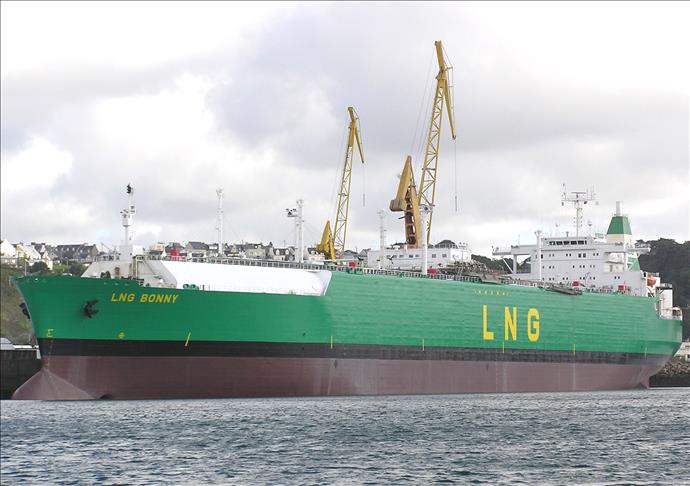
ANKARA
By Ovunc Kutlu and Nuran Erkul
Liquefied natural gas can be used as alternative fuel to diesel and gasoline for road transportation in Europe in the next five years, according to an oil and gas expert.
"The feasibility of LNG as fuel for transportation has been proven, technically it is possible, while commercially the possibilities assessed are positive," said Cyril Widdershoven, an oil and gas expert, working for TNO, a Dutch consultancy company.
Almost 95 percent of the total energy use in European transportation is fueled by oil, while European countries seek new alternatives to reduce their high dependency on oil in transportation.
There are some 285 million vehicles on Europe's roads, or one for every two people, according to European Automobile Manufacturers Association.
He added the widespread use of LNG for transportation in Europe as an alternative fuel to oil can be seen within the next three to five years in theory, given that oil prices will stay above $80 per barrel, gas prices will decline, while worldwide gas demand will lag behind supply volumes.
"Although the use of LNG in transport is likely to increase Europe's dependence on natural gas, it will reduce its reliance on oil, which is more expensive," said Chris Le Fevre, a research fellow at the Oxford Institute for Energy Studies.
"In Europe, tax on LNG is normally less than on diesel, and gas is cheaper than oil. So, there is a double benefit," said Le Fevre.
"Calculations show that a pump price differential between LNG and diesel of $20 per million British thermal units (28.32 cubic meters) equates to €0.43 per kilometer for diesel and €0.28 per kilometer for LNG in Europe," Le Fevre stated.
In Europe, diesel cars account for 55 percent, gasoline cars for 42 percent, and all other vehicles - hybrids, electrics, natural gas and ethanol-fueled vehicles make up the remaining 3 percent, according to the International Council on Clean Transportation.
LNG for a cleaner environment
"For sustainability, there are clear advantages of natural gas compared to other types of fuel such as gasoline/petrol and diesel in terms of emissions," said Sijbren de Jong, a strategic analyst at the Hague Centre for Strategic Studies.
"More densely populated areas, large cities and agglomerations can benefit from the reduced greenhouse gas emissions," he added.
Cars are responsible for around 12 percent of the total EU emissions of carbon dioxide, according to the European Commission, who target 18 and 40 percent reductions for 2015 and 2021 respectively.
"If there is an EU strategy to promote gas as a fuel for transportation, possible technical challenges and environmental issues can be countered, especially taking into account that gas as a fuel is very promising in relation to emissions," said Widdershoven.
There are still infrastructure bottlenecks to be overcome, however, for widespread implementation of LNG use in transportation in Europe.
"The facilities for refueling natural gas vehicles are not as widely available compared to traditional gasoline alternatives," said de Jong.
Widdershoven agreed with de Jong, and stated that if LNG producers provide investments to set up the necessary supply and transport infrastructure for road customers, the overall picture could change very fast.
Anadolu Agency website contains only a portion of the news stories offered to subscribers in the AA News Broadcasting System (HAS), and in summarized form. Please contact us for subscription options.

